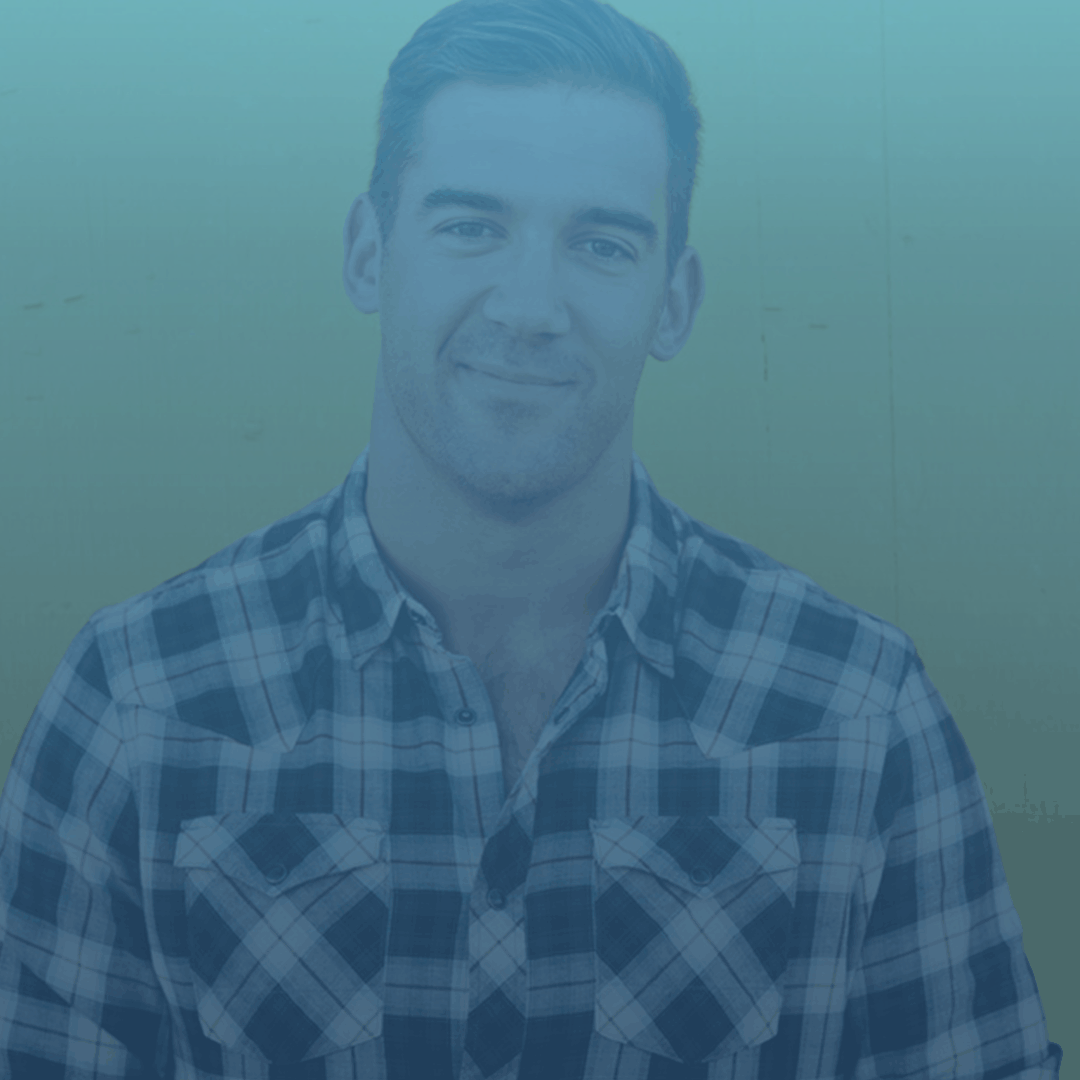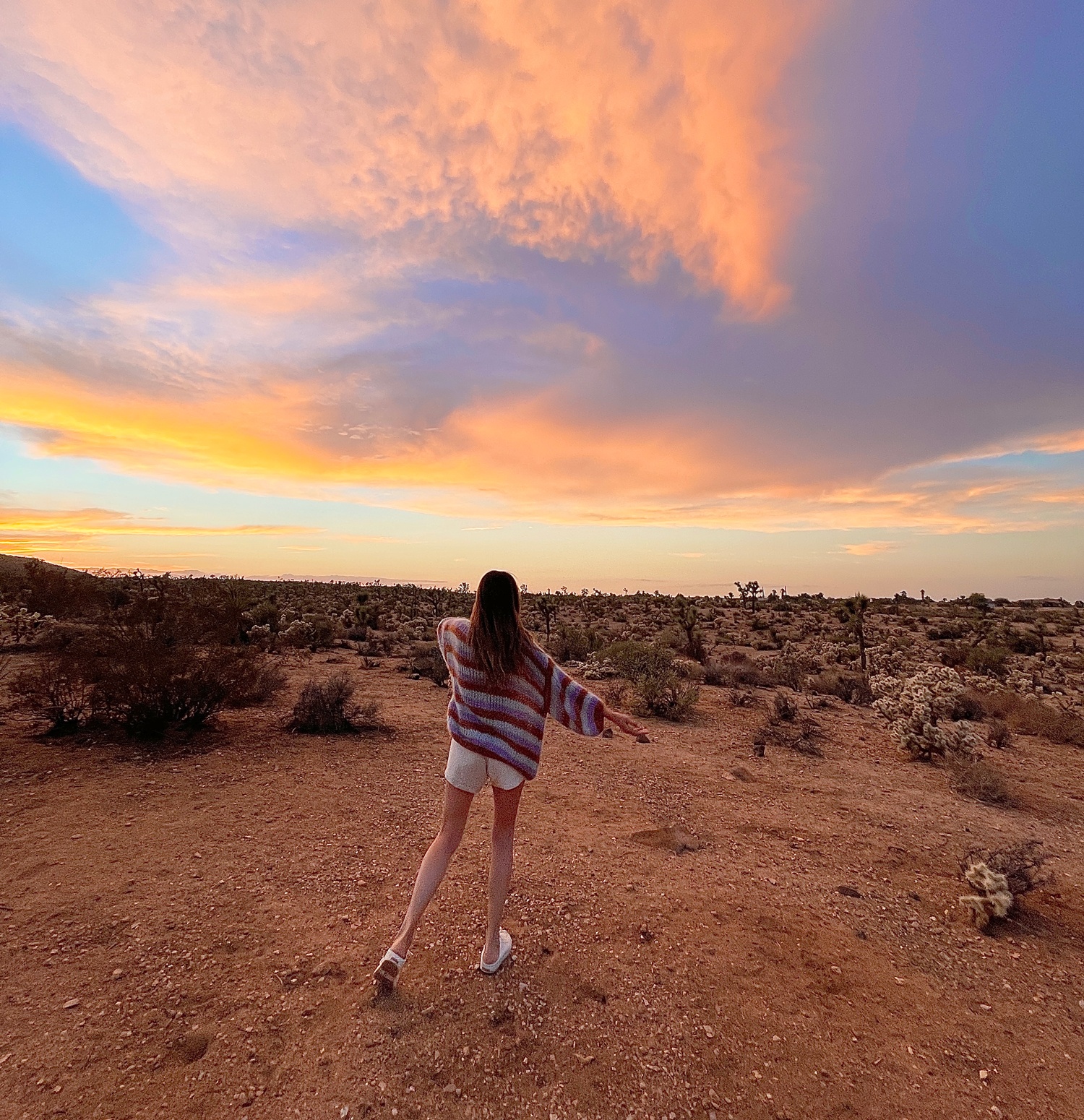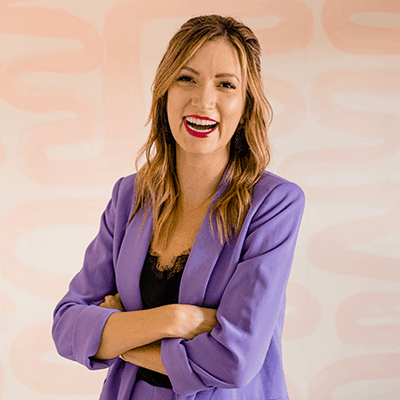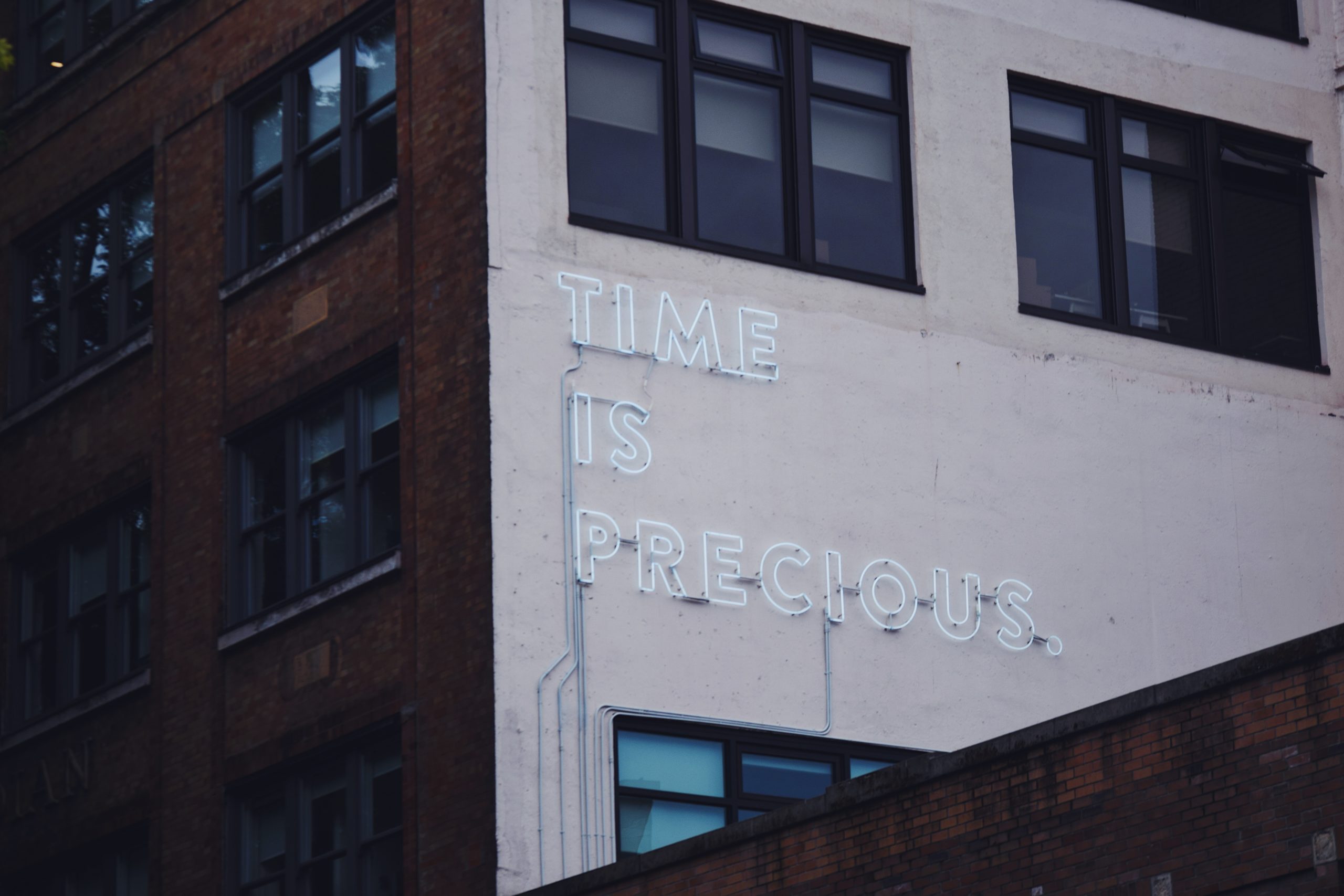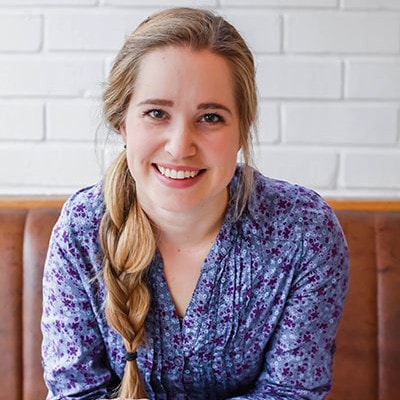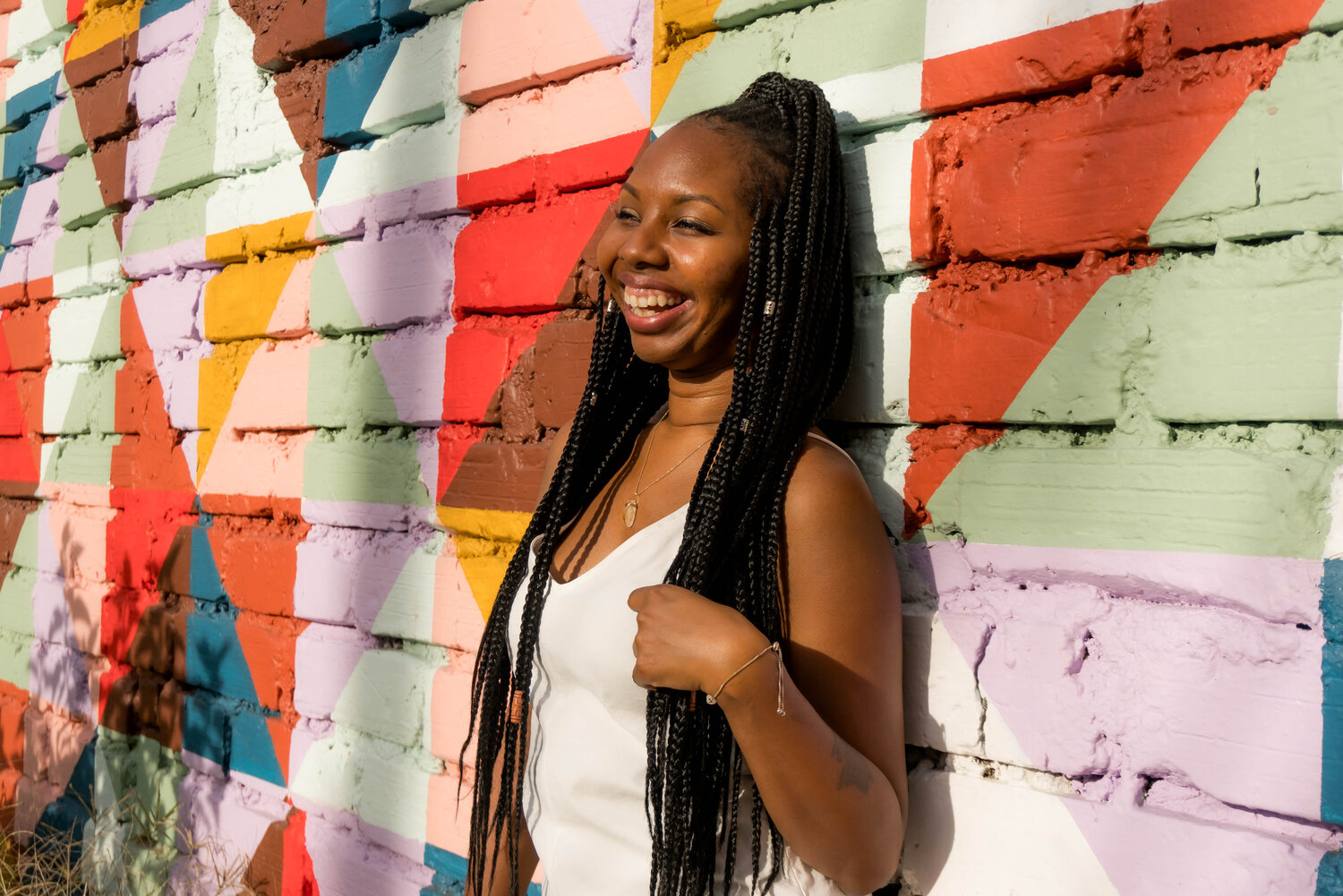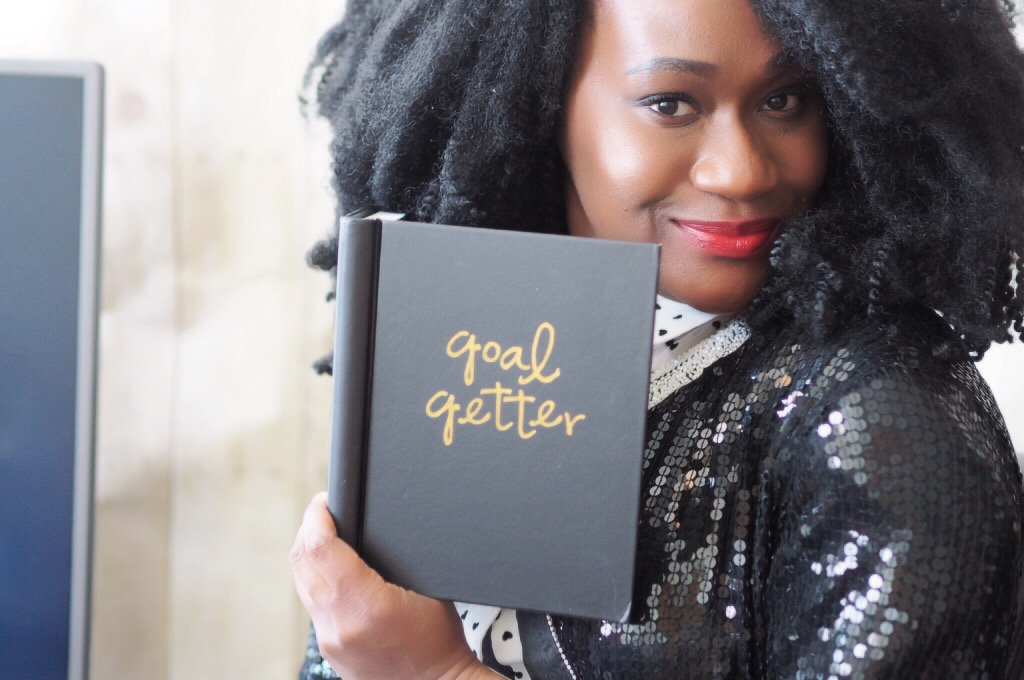Today’s guest is a personal mentor of mine and someone that I am so deeply inspired by. Any guesses? 🙂 You’ve probably heard of Lewis Howes before, but if you haven’t, you need to know who this guy is.
Lewis is a New York Times best-selling author, lifestyle entrepreneur and keynote speaker. He hosts the top rated podcast The School of Greatness, which has over 35 million downloads since it began airing in 2013! Lewis has been featured on The Ellen Show, The New York Times, Forbes, and so many more places. Former President Obama even recognized Lewis as one of the top 100 entrepreneurs in the country. So…this isn’t your average human.
I’m thrilled to share him with you in this interview, where we talk about the subject of his latest book, The Mask of Masculinity: How Men Can Embrace Vulnerability Create Strong Relationships, and Live Their Fullest Lives, and the different masks that men wear today.
We also discuss what it feels like to take off these masks and how to help men to embrace their vulnerability. So whether you’re a woman looking to better understand the men in your life, or a man who wants to understand the masks that hold you back, this interview is for you.
Let’s dig in.
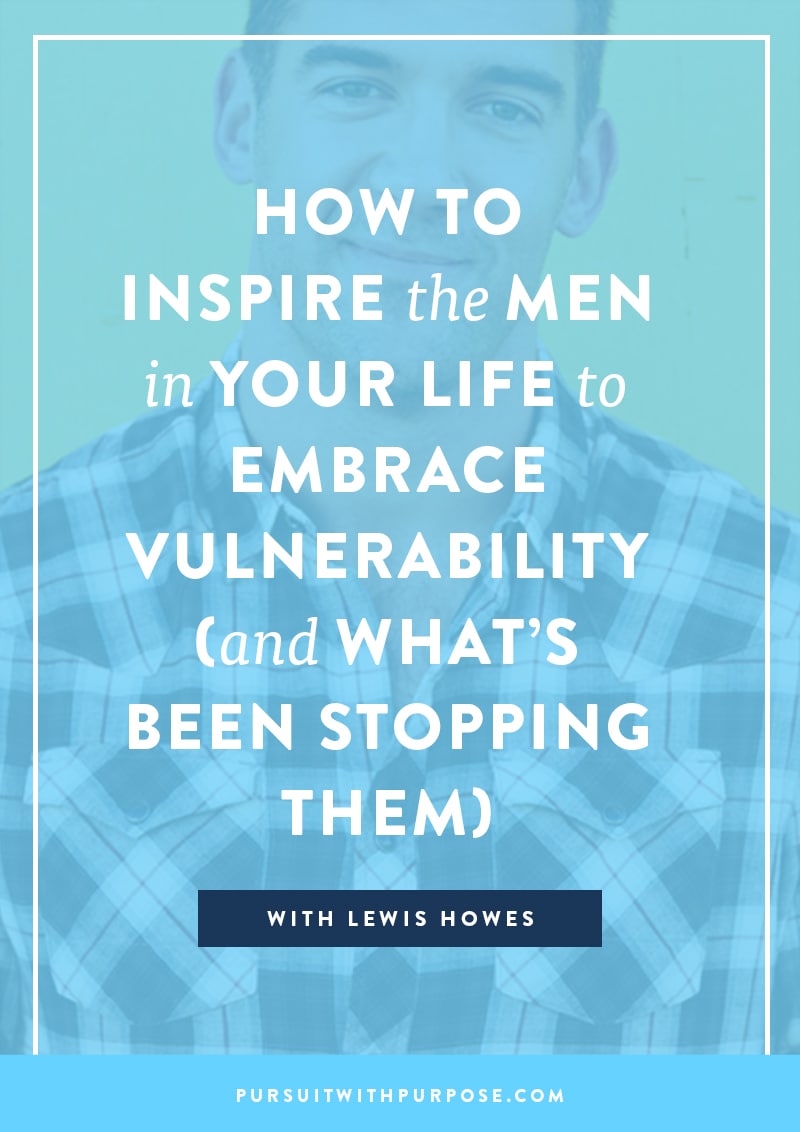
Check out the episode below:
In this episode, we talk about…
- The lifelong patterns Lewis noticed that were holding him back (and the path he went down to change them).
- A powerful experience in grade school that led to Lewis putting on his “mask” at an early age.
- How women can better understand the men in their lives and inspire them to take off their “masks” and embrace their vulnerability.
- How Lewis manages to balance an intense drive for success, along with fulfillment as an inner being.
- The key reasons why you need an interruption in your life to truly start becoming aware.
- Lewis’s thoughts on “ego” and “service” – are they the opposite of each other?
Some Questions I ask…
1. Do you feel like it’s normal to be fulfilled in certain areas of our lives, but unfulfilled in others? Is that just the way life is?
2. How do we cultivate better relationships with the people in our lives?
3. How can men recognize where they are hiding in their lives and putting up a facade, and then make a change into who they really are?
Links from the interview:
- Lewis’s Website
- The Mask of Masculinity: How Men Can Embrace Vulnerability Create Strong Relationships, and Live Their Fullest Lives, by Lewis Howes
- Lewis on Facebook
- Lewis on YouTube
- Lewis on Instagram
- Lewis on Twitter
- Lewis on Pinterest
What do you think?
I’d love to hear your thoughts on this episode. How can you embrace vulnerability to live a more fulfilled life? Leave a comment below and let’s chat. 🙂
Here’s how to subscribe + review
Want to be the first to know when new episodes are released? Click here to subscribe in iTunes!
Also, podcast reviews are pretty darn important to iTunes and the more reviews we receive, the more likely we’ll be able to get this podcast and message in front of more people (something about iTunes algorithms?). I’d be extremely grateful if you left a review right here letting me know your favorite part of this episode.
#PursuitWithPurpose
Loving the podcast? I encourage you to use the hashtag #PursuitWithPurpose to show our PWP tribe how you live your purpose everyday. Plus, you’ll get to sift through the hashtag to find other business owners who care about community and connectedness over competition and comparison. And I’ll be reposting some of my favorite images and stories, too. 🙂
Thank you for listening!
Transcript
Read the Interview Transcription HereNow I’m thrilled to share him with you in this interview to talk about the subject of his latest book called “The Mask of Masculinity: How Men Can Embrace Vulnerability, Create Strong Relationships and Live Their Fullest Lives”. Today we’re chatting about the different masks that men wear, what it feels like to take off the mask and become vulnerable in a relationship, how to get the men in your life to embrace their vulnerability, and what it was like for Lewis when he had achieved monumental levels of success and found himself completely alone and unfulfilled. Now whether you’re a woman looking to better understand the men in your lives, a man who wants to understand the masks that hold him back, or any person who’s eager to learn more about their human experience, this interview is for you. Let’s dig in.
Melyssa Griffin: Hey Lewis, welcome to the show!
Lewis Howes: I’m so excited. Thank you, Melyssa.
Melyssa Griffin: I am so excited to have you. You are one of my favorite people and you just help transform my life in so many positive ways. So super excited to chat with you about your new book and just so many other things that you’ve been up to that are absolutely incredible. So in your latest book, “The Mask of Masculinity”, you talked a little bit about how when you launched your first book, “School of Greatness”, you had all the success, you got onto the New York Times bestseller list. You were doing this book tour and had all these fans and money, but inside, you would go back to your hotel room and feel unfulfilled and feel like the success didn’t really matter. I was talking to you earlier about how that was a big reason I started this podcast, just having a similar experience in my life. So I’m curious if you could just kind of talk a little bit about that period in your life. What was it like?
Lewis Howes: Well this was a pattern I had my whole life, where every time I had achieved what I thought I wanted, it was like I was angry within 10 or 15 minutes after I achieved this lifelong goal, and then I’d be angry and resentful and frustrated and passive aggressive towards the people around me, closest. I was like I guess it’s just a way of life you know. I had no other way. And so, all throughout my teen years, my 20s, it was always that way. It was like I was so driven to achieve something and then achieve it and was unfulfilled. I was like I just never knew why, so I just said okay, I need a bigger dream. There must be something more to like fill myself up or whatever it was I was chasing. So I think just around that time with the book, I was like okay I’ve done this in sports, now I’ve done this in business and in these other areas, and it’s the same for everything I’m chasing. So I just went down a path of like why, why is this now. something’s not working. I can go after a bigger dream and I’m not going to feel what I want to feel, so why? I started to address everything in my life during this time. I started to really dive in and look at like okay, why am I so driven to achieve, why is it never enough, why do I get angry in situations, why is there people that just piss me off so much that I want to fight them, why do I not talk about certain things that I’ve been through my life, why have I never shared some things, what am I afraid of. I just started asking myself these questions, and then I started revealing the answers. I started sharing with people my biggest insecurities, my biggest flaws, my biggest fears, and started opening up really for the first time in my life. I was always a very happy, loving, affectionate guy, but I think there was something that I still wasn’t willing to reveal to people about myself because I was afraid that people wouldn’t accept me. I was afraid that I wouldn’t fit in.
A lot of this stemmed from needing to fit in. If I trace it back to childhood, I can tell you many moments where I felt like I wasn’t good enough. I’ll give an example. I was playing in a dodgeball game, a class dodgeball game in fourth grade. The teacher took us out to recess and played this class dodgeball game. Say there were 15 boys, 15 girls. We picked two boy captains to choose the team, so like one at a time, they picked someone in our class to be on their team. I’m thinking to myself, I’m like one of the tallest, I’m one of the most athletic here, so I’m going to be picked one of the first. They started picking one boy at a time and it comes down to the last two boys, and it’s me and another boy. This is like the kid with glasses, like the nerdy – kid has no athletic ability. I’m like they have to pick me. They pick the other boy. So I’m devastated, but it gets better because then they pick a girl and they pick another girl, and they pick all the girls until I’m the last person picked. I’m like a less than a girl. As a boy growing up, to be called a girl is like the worst thing. So to be picked last after the girls, I was like so furious in that moment that I was like destroying people in the dodgeball game. I was like slamming in people’s faces, I was catching everything. I was like a maniac.
I told myself never again do I want to have this feeling, where I’m picked last, where I’m not accepted or I don’t fit in. So I put on this mask of the athlete mask and I said I’m going to be the biggest, fastest, strongest person I can be so that I’m chosen first, so that people want me on their team, so they want to hang out with me, and it worked. It worked. I was like so driven to be great in sports that people picked me first. I was a starter. I was an MVP. I was All-State. All these things happened that I wanted. And so, I was like I’m achieving all these things I wanted and I didn’t understand why it wasn’t working on the inside. The outside was working but why wasn’t it working on the inside, why do they still need more to feel like worthy. My self-worth was wrapped around my accomplishments, not for how I showed up in the world, not for my compassion or my kindness or my generosity or my joy. It was surrounded with winning. And so, if I ever lost, it was an attack on my identity is what I later found out in my early 30s. It’s like oh if I lose, that means people aren’t going to accept me and I’m not good enough. So I have to win at all costs in sports, my relationships, business. I was living a win-lose world. I need to be right, you need to be wrong in order for me to fit in. That’s what I realized, is that these masks are things that we wear as men and as women to fit in, to be accepted, to be loved and be acknowledged. It’s not truly who we are, but it’s hard because these things work. They get us results on the outside, but it leaves us feeling very unfulfilled on the inside. So that’s the rub.
Melyssa Griffin: Yeah, I had that similar experience in my business, not sports but my business, where it was like I achieve one thing and thought that would bring me happiness and fulfillment and then it didn’t. Achieve another thing like these outer measures of success and just keep moving the benchmark to the next place and thinking maybe that’ll make me happy, and then realizing that that never would make me happy. That was not actually the key to fulfillment. Do you feel like there is an element of control? It sounds like having control over your life, having control over what happens in your life that keeps the mask on.
Lewis Howes: But it’s a false sense of control. Yes, that’s why we wear the mask because it feels like we’re in control, but when we do certain things that aren’t truly what we want to do to fit in or to look at whatever it may be, we usually don’t feel fulfilled inside. So we think we’re in control but then we suffer. How is that control if we don’t have control over our inner peace? If we reactive to certain situations in the world or reactive to things we do or don’t do, reactive to people, their attacks or whatever they say – if we are reactive, that means we are saying you are more powerful than me and I’m going to give you all my power because now I’m doing something in reaction to what you said, didn’t say, did, didn’t do, the way you looked at me – whatever it is. You cut me off, now I’m going to give you all my energy and power and get out of the car and start swearing at you and try to like fight you. How does that serve my vision as a man, woman, human when I’m giving someone else my power and giving them all my energy as opposed to putting my energy towards my vision and service? And that’s what I realized, it’s just I was giving my power away left and right. When I would get triggered, I was like okay, let me put on the mask, I’m like go time. That’s like a recipe for suffering.
Melyssa Griffin: Yeah. So I’m curious. I know you personally and you are one of the most driven people that I know. You’ve always got these big projects and your amazing podcast. How do you balance that, being a success minded driven person with finding fulfillment as an inner being?
Lewis Howes: It’s a shift in awareness because I was doing all these things before, but I was doing them – like I was up to big projects and things and I was always excited about it, but it was coming from a place of like doing it to fit in and to prove people wrong. Prove the kids from like fourth grade wrong, prove this person wrong, prove that person wrong. Anyone that was like attacking me, prove them wrong. So on the outside, it looked like I’ve been doing the same things, but the energy from my inside has shifted. Now I’m not perfect and there’s still times when I’m like I’m going to prove them wrong. I usually don’t feel good about myself. I’m like okay Lewis, drop the ego, let’s get back to my mission. What is my mission? The ultimate human being. I’m not even just talking about masculinity and femininity. The ultimate human should be to live in service in my opinion. In service to your dreams, in service to your health first, and then in service to the world and however best way you can.
When I realized this, that I was doing everything to prove people wrong, I was achieving but it didn’t feel good, so I said okay you know what, I’m going to do things to lift others up, not to put them down or in their place. I’m going to do things to live in service. I’m going to do things because it brings me joy. I’m going to do things because it’s inspiring to other people. Then it’s like I’m still driven, I’m still like aggressive with love as opposed to aggressive with anger. The fuel to prove people wrong is so powerful. It drove me my whole life to achieve. It would put me through any pain, any suffering I could get through because I had the fuel to prove people wrong. So it’s scary because you’re like well this works, like having all the people that hated me or said I couldn’t do it like a photo of them and saying I’m going to look at this every day and prove them wrong on the wall. It works. It’s scary how powerful that energy is. When you feel so unfulfilled and like it’s never enough, then the price you pay is a heavy price. So I just said I’m going to shift everything to being in service, coming from a place of love, trying to be a catalyst of inspiration for other people, and trying to make an impact in the world. That’s when this weight lifted off my shoulders and that’s when I have allowed myself to live with inner peace and be committed to a bigger vision than the vision of proving people wrong.
We talk about this in our group, in the mastermind, about impact. One of the key measurements that we talk about is like okay, how are you making an impact. Yes, I want you to make a lot of money and I’m sure the people listening or watching want to grow their business, they want to make money, but if it’s just to prove something to yourself or to someone else, sort of look good, it’s going to be very unfulfilling. You had this experience where you’re like yeah I was reaching all these huge numbers in my launches and I was doing this and crushing this, blowing up and everyone loved it, but something was missing. We talk about impact because if we’re just doing things for ourselves to look good or to prove others wrong, it’s going to be a suffering life and so never to be fulfilling. So we’ve got to figure out a way to shift the energy to how can we be of service, how can we give back when we’re like creating so much for ourselves, how can we show appreciation and make the world better than the way we came here.
Melyssa Griffin: Right. I 100% agree. Now when you had that experience of realizing that you were in this place of a lack of fulfillment and wanting to shift things, do you remember what that moment was like? Was there a moment where you’re like this is the change…?
Lewis Howes: It was like a process over many months and still today, years – three, four years later of just constantly being reminded because it’s hard to break a habit that you’ve had your entire life. So for me, I think you really need some type of interruption in your life in order to be aware that this is even happening, because people told me these things for years but it never landed and resonated with me. It wasn’t until I started going through some kind of deeper emotional intelligence workshops that put me in such an interruptive state of mind, an emotional state, that I was actually able to see how I had shown up my entire life. There was such an interruption. This happens a lot, you hear this a lot when someone has a near death experience, when someone close to them dies suddenly, when they go through a breakup, when they divorce, when they go through like a career, they get fired from their job. When something happens, it’s an interruption for people to be like okay, I need to look at life differently. For me, that interruption was this workshop, like ongoing work where I finally was able to see how big my ego was and how much I was just trying to prove people wrong and how I’m just trying to look good. There’s still part of me today where I’m like I try to check my – I mean not to try to promote my book, but like there’s a big face of myself on the cover of my book. It’s hard for me to be like I don’t want this to come across as like I want my face out there and my ego and everyone to look at me, but I’m also like what’s going to draw people in the most to get the message that I need the reader to hear. So it’s like it’s a constant battle of just being aware of things and not to doing it because like oh this is going to make me look good. Because if someone actually goes through the book, you’ll see how much I actually put myself down and how much I failed as a human being throughout like every chapter. I’m like here’s how I hurt people, here’s how I was bad, here’s how I was wrong, and what it gave me, but where I suffered.
And so, I think you need an interruption. You need an interruption in your life. I hope it’s not a near death experience or like a loss of something, but sometimes that’s what it takes when someone is separated from something that they loved. Now you no longer have that because you’re separated; a person who passed away, someone who killed himself, a car accident, near death experience. You’re separated from this thing you once had. You start to ask yourself, there’s got to be a better way. I think I was lucky enough to – I had multiple interruptions; I got into a bad fight, I was going through a breakup. I was just like thing after thing was not working. I was like okay, I need to learn what’s going on here and I allowed myself to learn.
Melyssa Griffin: Yeah that makes sense. Are there any things – first, is the workshop, was it MITT that you went to?
Lewis Howes: Yes.
Melyssa Griffin: Still have to go to that myself. I’ve heard amazing things from you and others.
Lewis Howes: Pretty good. It’s scary because it’s going to bring up things you don’t want to look at…
Melyssa Griffin: Oh yeah. I resisted it too. I actually rescheduled it. I was like I don’t know if I want to completely alter my life right now.
Lewis Howes: You don’t want to because it’s not fun. It’s not fun looking at all the things that you’re afraid of. It’s not fun to address the things that you’re scared of, intimidated by, insecure about yourself, ashamed about, unforgiving. It’s terrifying to address these things. That’s why I held secrets for 25 years that no one knew because I was like if anyone ever knew these things, would they actually still like me, would they actually accept me, would they actually want to hang out with me, would I still have a seat at the table, would they invite me over to their home. That’s like our greatest fear, is acceptance. If no one is going to accept us for who we actually are, the things we’ve been through, the pains we have, that’s scary. And so, we don’t share those things because we’re afraid that we’re not going to be accepted. And then we live a life that’s fake in a sense because we have worn a mask to fit in. We do things just so we have a seat at the table. And then we resent ourselves because we’re not fully opening up, then we resent the people around us because we feel like we’re not allowed to share with them. We’re just like constantly in this chase and this inner battle of like why is something missing or why is something wrong, why am I stressed out or anxious all the time or why do I feel like…
Melyssa Griffin: …feel like I’m doing all the right things, why is this happening?
Lewis Howes: Exactly. I mean that was my whole life until I had an interruption of darkness.
Melyssa Griffin: Yeah. Right, darkness. Because I feel like I’ve had – we’re just talking about me personally, I feel like I’ve had some interruptions that have shifted things in a big way, but what I found is that it’s hard to maintain that interrupted self. There’s still like these triggers or these limiting beliefs that pop back in when you least expect it. What do you do?
Lewis Howes: It’s called being a human being. Join the club. What do I do to stay consistent without being triggered?
Melyssa Griffin: Yes.
Lewis Howes: I surround myself with really humble people and I ask them to give me feedback if I ever go to that place. I request and demand feedback. I say if you see my ego acting up, if you see me saying things defensive online, if you see me reacting in a certain way to people, please let me know in a loving way because I might be so triggered that I’m going to be defensive towards you as well. So let me know and I’m requesting it now. And so, that’s one of the things – I have a coach that I work with on a regular basis that I check in with. I’m just like here’s what I’ve been feeling, here’s what I’ve been going through, and we recommit to my vision. What is a vision that you want to live, Lewis? What’s the vision you want to have? Do you want to be a reactive human being that gets angry and aggressive or do you want to be a human being who is consciously aware and when everything hit the fan you’re such at peace with yourself and so poise in confidence that you can assess a situation, bring clarity to it and diffuse anything with love? I’m like wow that’s pretty amazing. So I’m just trying to recommit to that human that I aspire to be. I make as many mistakes as everyone else, if not more all the time.
I’m sure you meditate. I think meditation really serves me in a big way because it allows me to breathe and set my intention for that day. I think sometimes we get overwhelmed with like so much we have to do for the next year and years and all these things that come up, like just focusing on okay, who do I want to be today. If someone says something to me, someone cuts me off in traffic – I put myself in those situations. I visualize the day of like okay what are some things that could go wrong. I just imagine myself smiling and breathing during that adversity, because doing the opposite isn’t going to help me or my vision. Saying that I’m actually a weak human being because I’m giving that situation, that person power over me. They now have my power because I’m reacting to what they just did. So I gave them 100 – they just have so much influence over my power that I just said here take it because I’m going to react to you. The ultimate human doesn’t give someone else their power in a moment because they’re triggered, the ultimate human knows how to just smile and say it’s not about me, it’s about them, and comes with compassion and love, and stays true to their vision, and stays in that direction as opposed to getting off track towards like addressing some conflict that they need to be right and win. It’s a constant process for me because I am very competitive by nature. I never want to lose my competitive nature, but I want to be someone who lifts others up even when I’m competing in the world. So I’ll still be like let’s go, let’s compete but I want you to win as well. I think that’s the ultimate man, human, is the one that can win but gets everyone else to win around them because of it as well.
Melyssa Griffin: I like that so much. That’s awesome. So I want to talk a little bit about “The Mask of Masculinity”, your book. You talk inside of the book about all these different masks that you see men wearing in their lives, in their relationships, in their work. So after hiding behind your masks for so long, why did you feel like now was the right time to write this book and to give it to people?
Lewis Howes: I felt like nothing else made sense to work on unless I worked on this. This was the thing. I didn’t know Charlottesville was going to happen with all this – it blows my mind, all the racial tension that’s still in this country. I didn’t know Las Vegas was going to happen. I didn’t know Trump was going to win when I started this process and the political stress was going to happen. I wasn’t aware all these things were going to happen, but I just knew for myself that I was suffering. When I started to open up and become vulnerable in a sense of sharing with other people about my biggest insecurities and fears and the things that have happened to me, what happened was the most powerful and profound thing of my life. Other men would email me – when I started opening up about being sexually abused and the other things I’ve been through, the things that I didn’t want people to know because I was so ashamed, men started to email me and say you’re my hero, you’re my hero, I never thought I was able to talk about myself getting sexually abused and my wife doesn’t know, my kids don’t know, no one in my life knows, I’ve been married for 30 years, she doesn’t know, you’ve given me permission to actually have an open conversation for the first time ever in my life about the things have terrified me the most because I always felt like to be a man, I had to have it put together. Hundreds of people started emailing. As I started to open up, I would get this feedback. And then women kept saying thank you, we’ve been talking about this as women. Brené Brown, The Power of Vulnerability. Oprah, we’ve been talking about these – women get together and share their insecurities, their fears. They come together and form groups on the weekends over lunch and talk about these things. They’ve been saying we’ve been shouting this from the rooftops but no men are listening. So thank you for setting the example that it’s okay for the jock looking big white man to share these things. I was like wow, is this really this powerful? I had no idea. I just thought I wasn’t allowed to say these things because that’s not what it means to be a man.
The more I started to open up, what I realized is wow, these situations of my past no longer had power over me because I could talk about them freely as opposed to being so afraid to talk about them. That fear made it that it had power over me, because I wasn’t confident with who I was, to just be like no this is what happened, this is what I’ve been through, this is my flaw. So I’ve been masking this sense, this identity that isn’t truly me. I realized like my publishers and agents wanted to me write a book about business and all these other things. I was like yeah I could do that someday, but it’s just not what I care about right now. This is actually the thing that I think is going to make the maximum impact in the world. If people read two pages, I believe they’re going to understand how profound it is for themselves to heal. So I wrote this for myself to research and understand more about why I’m always this way. It blew me away. I said okay, I’m writing this for all the men who never felt like they could be themselves and they wear the weight of the world on their shoulders, and felt like they had to be a man, be masculine in a certain way to prove their manhood. It worked in some ways. It got results, but it’s made them suffer in other ways.
When men are unable to express themselves in a healthy manner, it creates disease, it creates cancer, it creates explosions of anger, it creates domestic violence, it creates mass killings, and it creates suicides. Because when men can’t express the way women tend to express through healthy dialogue, it’s got to come out somehow. For me, that was anger, that was aggression, that was fighting, that was screaming, that was needing to be right. For some men, it’s nothing at all. They keep it bottled inside their whole lives and then one day they commit suicide, they have cancer and die early, they shoot someone else. Somehow emotion has to come out of us. It’s either going to be healthy or unhealthy, it’s our decision. If it’s not healthy and we bottle it up so tight that we don’t come out with anger, that’s going to be in our body in a negative way and create some type of disease. One way or another, it’s coming out. I just felt like I knew I needed to talk about this, otherwise, I was going to be hiding behind my own mask even more, to not talk about things that I felt like or needed to be talked about, and just having a conversation and giving some men some tools. And then I realized, wow, if women could understand men as well – and yes, men get to understand women, that’s a whole other topic – but if women could understand the men in their lives of why they wear certain masks and determining which mask the man is wearing at any moment – your father, your brother, your husband, your son – if you can determine the mask they’re wearing, then you can fully understand why they wear that mask. If* we can understand why they wear the mask, then I give some practices on how you can get them to remove it and actually just be themselves with you. When you can be yourself with someone, you can build a relationship, you can build trust, you can build communication. You’re not fighting, you’re not arguing, you’re not punching each other, you’re not killing each other.
That’s where the root of all this harm is happening in the world, is 95% of the killings, the wars, the arguments, the attacks – all this stuff is coming from men who are hurting and don’t feel like they’re seen and don’t feel like they’re accepted for who they are. If you go back to all these things that have happened, the racial tension in Charlottesville, it’s all men who are like shouting at the top of their lungs of like I’m scared, I need to protect myself so we’re going to attack other people and prove that our way as the right way. It’s like all these things stem from men who are hurting and that don’t feel acknowledged for the good they’re doing. If women can understand this in your work relationships and your intimate relationships and you just have like the awareness of this – ladies who are watching or listening, you’re going to create such healing in your life. You’re going to create such an environment of peace, fulfillment, of love and of joy, that you’re going to notice your business takes off, that you’re going to notice your relationships take off in a positive way. You’re going to notice the weight that’s removed from your heart and you’re going to step into a healthier body. You’re going to notice things unfold, the things you’ve always wanted are going to happen faster. It’s not going to feel forced because you’re going to have a deeper more intimate relationship with the men in your life. It’s going to drastically transform everything.
Melyssa Griffin: That sounds good. I like that. What do you feel like – kind of going off of that topic, what do you feel like partners of men or even just people who work with men, you mentioned coworkers, what do you feel like people can do in relationships with men to help them feel more secure in expressing their emotions instead of pushing them away?
Lewis Howes: Not making them wrong for the things that you wish they were doing, but making them right for the things they’re doing well. I think specifically for intimate relationships, it’s really easy after many years to kind of get frustrated with your man, partner, who isn’t doing the thing you might wish they would do more of, who isn’t – whatever, cleaning up, who isn’t like thoughtful, who isn’t like getting you nice gifts – whatever it is that you’re wishing he would do more of. It’s frustrating to you. It nags you and it’s like always in the back of your mind, like I wish my man would do this, I wish he would do more of this, I wish he’d be more like this guy who takes them out to nice dinners – whatever it is. There’s always something. Instead of fixating and focusing on that, my suggestion is to – when you’re in a frustrated place which is the hardest thing to do, is to focus on something good, think about something they did good that day or that week and knowledge them for that. Say I’m so grateful for how hard you work. I know you go to work every single day and you give your all, and it’s to support me and our family and our kids and pay for the home and all those expenses. I really appreciate and acknowledge you, and it means the world to me. Focus, because if he is getting nagged on something that he’s not doing, and he’s like I’m spending ten hours a day over here trying to serve our family, you’re not even acknowledging it, it’s going to hurt him and make him want to put on a mask to protect himself even more. So whether he makes you coffee in the morning, whether he does something – like just find something small that you’re like I really knowledge and appreciate that you do this, it means the world to me.
Melyssa Griffin: Yeah. Well it makes sense because what you were talking about earlier with people who do shootings and people in Charlottesville, it’s that they’re not feeling seen, like they just don’t feel like people see them at their core. It sounds like this is a simple way to really see a man.
Lewis Howes: And acknowledge a man for the good that he is doing and he’ll want to do more good in general. No man wants to feel like he’s a bad man. He doesn’t want to feel like oh I’m not a good enough man for you because you just keep nagging me on all these things, so I feel like I’m this horrible man. Gosh it sucks. I wish you’d just see me for who I am, all the good that I am doing. I’m not saying he’s got to be perfect and neither are you, but if you want to have more harmony and get him to open up and not constantly fuse his mask to his face to protect himself, acknowledge him even when you’re frustrated because it’s going to be so hard to do when you’re upset about something. Find a way to come from a sincere calm place and just be like I really want to acknowledge you for the coffee you make me in the morning, when you make me breakfast ,when you take the kids to school, like I’m just so turned on when you get that. Find a way to create desire where he’s like wow, yeah I want to turn my woman on even more, because that’s going to get him excited to do more good. If he’s like you’re turned on and you want to have more sex and want to have more passion, he’s like yeah I want to do more of these things, I want to like – other stuff…
Melyssa Griffin: I’ll take the kids to school every day.
Lewis Howes: Whatever you want. Yeah. I want this acknowledgement as much as I can, so I want to be more of a good man. When a man feels like he’s never good for what he does and only focused on the negative, he’s going to resent you. He’s going to resent that and he’s going to want to put on a mask to try to fit in to what you want and protect himself. So he’s probably not going to fully open up.
Melyssa Griffin: Right. Do you feel like that’s the first step or the entire step to creating vulnerability?
Lewis Howes: If you’re a woman of if you’re a man, I think sitting down at a neutral time with no distractions, TV and phone, and starting with a request by saying hey babe, I really want to ask you a question about something I’m going through and just I want to make a request that you don’t judge me right now, that you’re not going to get upset at me, that you’re not going to think any less of me because it’s something I’m really actually afraid of, something about my past or something about me that it’s kind of hard for me to talk about. I want to feel like I can talk to you about everything. So I want to make a request that I’m able to share with you right now and you’re not going to judge me or make me wrong for something. So I think making that request from a loving space is a good place to start the conversation. Then you’re setting the stage and letting the guy know what your request is. I want to share something and my request is you don’t judge me or make me wrong or tell me to like toughen up – maybe because they have in the past. Maybe you’ve tried to say something and they’re like let’s figure out the solution, let’s fix it. Just say I just want you to listen for the next five minutes and I don’t want to try to fix anything or just make me right or wrong, I just want to be able to share and then have a conversation afterwards.
I think creating that space of vulnerability where the woman is leading with vulnerability, it opens up people’s hearts who have a heart. They want to be compassionate. It just might take some time depending on how much of the mask someone’s got fused to their face. But then also making requests and saying I’d love for us after that conversation – maybe he doesn’t open up or he does, you can say I’d love for us to be able to set a time once a month or once every few months where we can just talk for like 30 minutes. If there’s anything on your mind that’s upsetting you in your life or with our relationship or work, that I want you to talk about with me with zero judgment, zero anger, and then I want to be able to the same. I think just creating a context that works for you. I think that’s a good step.
Melyssa Griffin: Right. Yeah I like that. Do you think the process changes if it’s men to men, like even friendship or it could be an LGBT relationship? Do you think it’s different?
Lewis Howes: I think it is because I think the stat is – I got to look up the exact state. I think the stat is that 50% of men don’t feel like they have a good male friend they can tell anything to. It’s really sad because men don’t feel like they’re able to be vulnerable to other men in general. That’s hard when your relationships with other men are based on a false sense of masculinity like you’ve got it all figured out or that’s nothing or just not a problem for you. It’s hard because then who do you talk to? If you don’t feel like you can talk to your girlfriend or your wife, you don’t feel like you can talk to your guy friend, who do you talk to? It’s really challenging. We need to be able to share these things with people who are here to connect and to be understood and to understand, to express these things. So it’s much different with guys. That’s where I think men get to – there’s a lot these men’s group popping up that are having like more open conversations and they’re meeting once a month. I think that’s a really powerful thing. Men need more safe environments where they can be celebrated for their – the things that they’re challenged with in life as opposed to feeling they always have to have a put together until it comes out through anger on their kids or their wife or something.
Melyssa Griffin: Right. Yeah I agree…
Lewis Howes: This is a human being thing. I think you mentioned LGBT. I think there are people who are gender non-conforming, who don’t associate with male or female. So this is a human being thing that we all get to open up to others in general. The less or the more we’re afraid to open up, the more we need to put masks on to protect ourselves or to fit in. I can only imagine what it’s like to be gay or to feel like you’re not a specific gender, you’re a different gender, and yet you’ve been wearing this mask your whole life, not telling anyone. For all the people that have kind of come out of the closet, you hear like this “I finally felt freedom”. I felt like I was so terrified to let people know that I wasn’t straight. I was so terrified what my parents were going to say, my friends – like all these people, the consequences I was going to face. Almost 95% of people who come out of the closet and have opened up, they all talk about this sense of like freedom, like I’m no longer a prisoner, I can actually finally for the first time be myself. You see their energy and their passion. They come to life. They embrace who they are. This is the same thing with a false sense of masculinity. When we wear this mask projecting something that other people want us to be, and then we finally take it off, it’s the scariest thing to do because you’re like what if people don’t accept this, what if they think we need to do this, what if this… It’s like I felt this sense of freedom by being able to take it off and it’s like wow, now I know what it feels like to come out of the closet in a sense. I’ve been projecting something to impress people or to be what they want me to be, not to be who I actually am. The freedom is incredible.
Melyssa Griffin: Yeah. And for your own life, what are some of the masks that you have struggled with and do you struggle with any of them?
Lewis Howes: All of them. All of them, but specifically the…
Melyssa Griffin: And is it usually that men struggle with all of these different masks?
Lewis Howes: No, it’s kind of like a few tendencies. It’s kind of like a few, but throughout my life, I can be like oh I’ve had this mask and that mask throughout my whole life. Kind of the ones that I wear the most are the athletes, the alpha, the aggressive masks, and sometimes the sexual mask. Those are kind of like my tendencies, the ones that I, when I’m triggered, I go back into those because they feel good, they protect me. Based on the experiences I’ve had in my life and based on other experiences, guys go through different masks. They have different relationship with the masks. I still wear these masks today. I’m definitely not perfect. If you ask my girlfriend, she’ll tell you I’m not perfect. I’m constantly aware when I’m wearing them. I do a lot better job of just breathing through them as opposed to reacting and giving my power away. I’ll breathe and I’ll just like don’t respond to something, and just try to like okay, what would a man of service do in this moment, would he react, defend himself and attack or would he just diffuse the situation and move towards his vision. It’s the hardest thing to do when you’re so conditioned to react. It’s really challenging. That’s why I haven’t perfected it yet. My vision is to constantly have these conversations so that I remind myself and practice.
Melyssa Griffin: Right and keep it this kind of daily thing that you’re checking in with yourself.
Lewis Howes: Absolutely, constantly because I could easily go into like an aggressive angry guy whenever I want.
Melyssa Griffin: Yeah and I think it’s the same for all people, men and women too. It’s like you can immediately go back into that triggered place that you grew up believing was the right way to live. Yeah. So you mentioned a couple times throughout our chat, the words ego and service. Do you feel like those are opposites, ego and service?
Lewis Howes: I would think so. I mean it depends on your definition of ego, but I think focusing…
Melyssa Griffin: How do you define it?
Lewis Howes: I think ego would be like a false sense of self. It’s like an idea of yourself that can be hurt. When you remove that idea of yourself that can be hurt, you can no longer be hurt. You don’t have this thing that is always triggered or affected. So it’s like the most selfish parts of yourself. I think the definition of ego in the dictionary, I don’t think it is that, but I think that’s kind of how we’ve explained it over the time.
Melyssa Griffin: Yeah, it’s more of like the expanded spiritual version.
Lewis Howes: Yeah exactly.
Melyssa Griffin: It seems like to me one of the things that holds people back the most, is just living in their ego more than living in that place of service like you were talking about.
Lewis Howes: Yeah, the ultimate human lives in service in my opinion. We think about the greatest leaders of the past, they all lived in service. We celebrate their ability to bring humanity together, their ability to lift people up. Maybe we celebrated certain like war leaders for conquering and this and that, but like the ones we really talk about who make us cry still, the ones who like serve people. From back to whether you believe in religion or Jesus or not, like you think of Jesus as this guy in service. The idea of Him whether – who knows whether what He, did but His idea, His legend, is like He was there to serve all humanity. Gandhi, Mother Theresa, Martin Luther King Maher – it’s like living in service. These are the ones who make the maximum impact. Yes, I’m sure they had egos and they wanted certain praise at different times, but it’s like the more we can remove ourselves from needing that praise to feel good, and the more we live in this vision of service to our family, to our friends, to our community, to our audiences, it’s like how can we be of service without needing the recognition and needing our egos to be fed. We’re all human beings and we’re going to want to be acknowledged and we’re going to want certain things because we desire it. When we’re so attached to those results and we don’t get them, then our ego is hurt and we’re upset because of the expectation. So it’s just like what works for us and all of humanity the best. Is it thinking about the things that our ego needs?
I think it’s different than thinking about the things our emotional health and mental health, physical health needs, which is like taking care of ourselves and putting ourselves first. I think there’s something different between putting yourself first and having your ego lead the way. Because some people might be like okay, I’m just going to give everything up and be of service to everyone, but then you suffer… It’s not being of service to yourself first…
Melyssa Griffin: It’s like putting on – what is the thing on an airplane? Putting your oxygen mask.
Lewis Howes: Putting your mask on first. Exactly. I think you got to be aware. It’s like a dance. We’re human beings, we’re not spiritual gods yet. So it’s like make sure that a couple hours a day, you give for you. That’s your time. Because if you only give to everyone else, you don’t have a life. So find a couple hours a day to serve yourself. The other 20 hours, you can give to the world or family, but if you’re not filled up first, then you’re not going to have much energy for anyone else.
Melyssa Griffin: Yeah, I totally agree. I love that.
Lewis Howes: We had this conversation a year ago about what are you doing for you to fill your passion, your joy up. Because you were doing so much work for everyone else and you were constantly like got to work, work, work. I was like when are you taking time for you and you’re like never. I can’t remember the last time I worked out. I don’t remember the last time I went dancing. I don’t remember the last time I went to karaoke. I was like you got to schedule this stuff because you’re a heart attack waiting to happen. I’m sure everything is not perfect still for you, but you’ve definitely had this energy that’s radiating much different than when I first connected with you about this a year ago.
Melyssa Griffin: Yeah and it’s amazing how transformative something like that can be, of just exercising a few times a week and eating differently and spending time working on yourself…
Lewis Howes: Playing, dancing – whatever, hiking.
Melyssa Griffin: Yeah I used to – and thank you for that by the way, that definitely helped me. I used to have these like daily rituals or routines that were kind of my personal development things, like meditation and journaling, and all that kind of stuff. I like them. They help me so much. And then I would find that I’d wake up one day and be like I have so much to do today, I’ll just do it later and then never do it. Now I look back and think well what was the point of creating a business to give me freedom if I don’t spend any time doing other things that I actually want to be doing, that are actually helping me be of better service to the world. So now it feels like more of this non-negotiable in my schedule. So I’ve got one final question for you that I like to ask all of my guests. This might be something that we’ve talked about a little bit already. I want to know what do you feel like people can do to live more meaningful and fulfilled lives.
Lewis Howes: Get clear on a vision that serves more than just you but serves humanity, because when we are only focused on the dreams that serve us alone, they become empty dreams. When we have big dreams for us that also impact others, then the adversity that comes our way, we feel like we can take it on because there’s a bigger mission behind it. If it’s just for us to prove people wrong, it’s never going to be enough. When we have something bigger than ourselves to strive towards, to be on a journey and the direction towards, and we others that we want to support with that journey, I just feel like we can take on anything. When we’re not clear on our vision, we could ask ourselves along the journey why am I doing this, what’s the point of this, like it’s getting too hard so it’s not worth it for me. It’s not worth it because you don’t have some reason or meaning for taking the next step or going the next day of the journey. So find something so much bigger than yourself that can inspire you to keep going to matter what. That’s part of our* life.
Melyssa Griffin: I love that. You practice that so well. Thank you so much Lewis for showing up today and for writing this book. I know it’s going to impact so many people in a positive way. Where can people find you? Where can people find “The Mask of Masculinity”?
Lewis Howes: They can go to lewishowes.com or maskofmasculinity.com or any bookstores. I’m just Lewis Howes everywhere on social.
Melyssa Griffin: Amazing. Thank you, Lewis. Love you.
Lewis Howes: Appreciate it. Love you too, Melyssa. Thank you.
